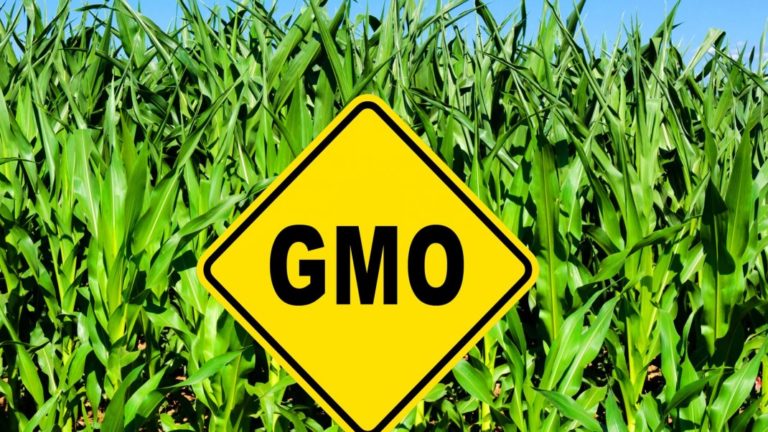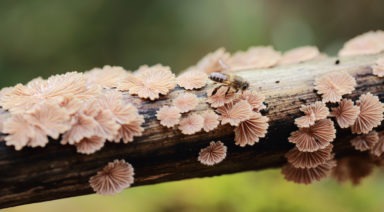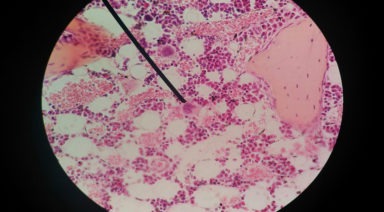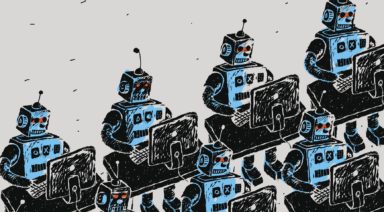Are GMOS Detrimental to Health & Reproduction?

How much do you know about the food you consume?
Sure, you might be an avid reader of food labels or an all-organic shopper. You may prioritize buying meats with no antibiotics or may not even eat meat at all. Perhaps you opt for the farmers’ market over your local grocery store.
However, an internal element of your food is harder to track: GMOs, or genetically modified organisms. What are they, exactly, and what do they mean for your health and wellness?
Simply put, GMOs are “altered with DNA from another organism, be it a bacterium, plant, virus or animal,” as Live Science explains. This ability allows geneticists to breed genetically modified foods, often resulting in a higher yield and production, such as tomatoes that are resistant to frost, potatoes that are more difficult to bruise, etc.
While the potential benefits from GMOs seem promising, there are still plenty of risks and unknown factors that warrant consideration when planning your eating habits.
Let’s take a look at a few of them to help you make the best decision possible when buying your food.
Seed Monopoly – Who Controls the GMOs
You may already know, when it comes to control over the seed supply, there are a couple of big players, one of which is Monsanto, which controls 80 percent of the GM corn market, and 93 percent of the GM soy market.
Couple that with the fact that behemoth companies such as Monsanto enjoy high levels of freedom when it comes to their activities, and it is certainly reason for concern.
As researchers on the topic report, 94 percent of our seed varieties have disappeared over the last century, leaving the remains to a handful of global corporations such as Monsanto, which is also known for its stringent control over farmers’ abilities to save seeds produced after harvest for re-planting as well as lawsuits against farmers whose non-Monsanto seeds are contaminated by the company’s GMOs.
Some even speculate that, while there is a de facto worldwide moratorium on terminator technology, or “seeds are genetically engineered to make them sterile and unusable for replanting,” companies like Monsanto may already be trying to make them a reality, further tethering a farmer’s ability to grow crops to their patronage of the company.
This wide-reaching control of the available seeds means it is already difficult, and likely to become harder for consumers to avoid purchasing GM products.
Is GMO Food Safe? Potential Health Risks
The monopolization of the seed industry through GMOs is not only a worldwide economic concern, but also a health one.
Due in part to their relatively recent inception, as well as a lack of substantial independent testing, much is not known about the possible side effects of long-term consumption of genetically modified foods.
Among the possible health effects some worry are connected to genetically modified foods are digestive issues, endocrine disruption, and possibly even gene altering.
The rise of instances of gluten intolerance and other similar digestive disorders have some pointing to GMOs as a possible environmental cause of the shift. While wheat is not a GMO, other GM crops have been engineered to withstand the weed killer called Roundup, whose active ingredient is glyphosate.
Analysis of related research suggests such components of GMOs may exacerbate or initiate gluten-related disorders, perhaps most specifically intestinal permeability, or “leaky gut.” This could be attributed to the hole-punching toxin used in GM corn, which kills insects by poking holes in their stomachs.
However, digestive issues aren’t the only possible impact of GMOs on the body. There may also be cause for concern when it comes to their potential effects on the endocrine system.
The rise in GM glyphosate-tolerant crops has caused concern among scientists, who call for a closer look at the direct effects of glyphosate-based herbicides (GBHs) to determine “whether the effects of GBHs are due to endocrine disrupting activities.”
This further investigation is especially crucial, given that endocrine disruption can account for increased obesity, liver disease, fertility issues, prostate cancer, and thyroid diseases among other issues.
Some studies even call into question whether GMOs could affect human DNA. One such study published by the Public Library of Science posits that complete genes may pass from food to human blood.
While concrete proof of the direct link between GMOs and some health effects has not surfaced, major organizations such as the American Cancer Society caution that “the lack of proof of harm is not the same as proof of safety,” and endorse the continued assessment of GMOs to be sure of their genuine safety.
What Can You Do?
When it comes to GMOs in your life, it really comes down to education. Depending on the political decisions of the state or country you live in, there may be differing rules and regulations regarding whether or not GMOs must be labeled.
While there continues to be plenty of debate about the controversial topic, the fact of the matter is that genetically modified foods are already on the shelves of our supermarkets, and in the foods we eat at restaurants and friends’ houses. Although many have endorsed the continued study and analysis of the long-term effects of GMOs on humans, its availability has outpaced the policy around it.
Resources about the issue are also choppy and somewhat lacking. That means the burden of research and decision-making falls into your hands. Find out more about the effects of GMOs to make an informed decision about whether or not you will consume them.
Luckily, there are some places out there than can help you to recognize and avoid GMOs by learning which products most commonly include GMOs and how to keep a look out for them. In addition, eating locally farmed food, shopping at local co-ops and grocery stores, and looking out for non-GMO verified products on store shelves are all great ways to limit your intake of GMO foods.
Should We Be Hesitant to Embrace Transhumanism?

The human body has somewhere in the vicinity of 50 to 100 trillion cells, depending on who you ask. Each of these cells has .07 volts of electrical energy potential — a relatively small number you might say. But when you multiply those .07 volts times 50 to 100 trillion, you get somewhere between two and a half, to five trillion volts. We are powerhouses of electrical energy potential.
Yet for some, this potential isn’t enough. In the minds of transhumanists, the body is a work in progress — one in which we must actively improve toward some perceived ideal. In some circumstances they may be right; our bodies are not all created equally, some face deformities and defects, or aren’t built as sturdy as others, making a good argument for the need to artificially augment.
But according to researcher and author Gregg Braden, this is a slippery slope — one in which we must tread with caution while appreciating the truly high-tech construction of the biological suits we’ve found ourselves born into.
“All of the technology that is now being developed in the world around us, and I worked in the Cold War years in the defense industry, space-based lasers, ‘Star Wars’ Defense Initiative… and I have yet to this moment, seen any tech in the world around us that does not mimic what we already do in our cells, except our cells do it better,” Braden said in a recent interview with Regina Meredith on Open Minds.
With advancements in microchip technology, futurists envision a world in which we begin to work toward almost complete integration with technology and computers. Some even go so far as to believe we will one day be capable of transferring our consciousness onto a hard drive composed of microscopic silicon chips, experiencing the world through that mechanistic, binary scope of the computer — potentially allowing humans to achieve something that looks like immortality.
But this reductionist mindset of the materialist, scientific lens is incredibly arrogant, Braden said.
Firstly, science’s “hard problem of consciousness” currently limits it from understanding what exactly consciousness is and where it comes from. And secondly, would this really even be the same kind of consciousness? Can you separate consciousness from our biological nature? And if you could, why would you?
Those are the two trains of thought when it comes to the views of our advancing technology and the transhumanist movement, Braden said.
One side views it as, “If we were never supposed to learn how to achieve such a feat, why have we gotten this far?”
While the other side says, “Just because we can, doesn’t mean we should.”




































